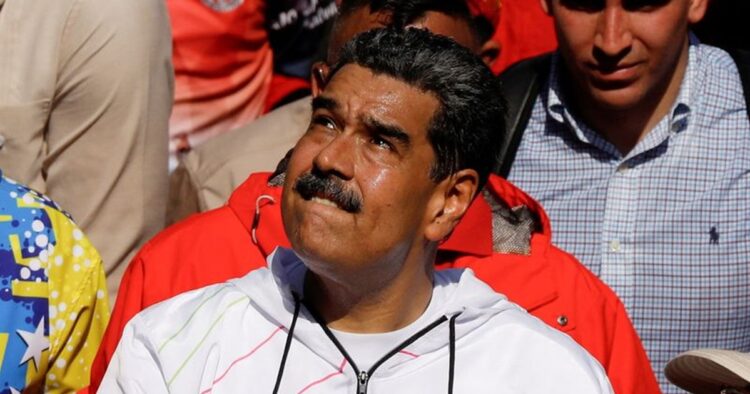Responding to the reinstatement of oil sanctions by the United States, the Venezuelan government is strategizing to compensate for the loss of income by boosting tax revenues.
The sanctions, reimposed in April, were a consequence of President Nicolas Maduro’s alleged failure to fulfill electoral commitments made with the opposition.
The renewed sanctions require companies to obtain individual licenses from the US to operate in Venezuela, thereby slowing efforts to ramp up crude oil production. This setback has directly impacted the government’s finances, especially in the lead-up to the July 28 elections, where Maduro is aiming for re-election.
In order to counter the financial shortfall caused by reduced oil revenue, sources familiar with the matter revealed that the Maduro administration plans to implement new tax initiatives.
These efforts include a slight increase in social spending and bonuses for public sector employees, who have endured stagnant wages for two years and earn considerably less than their private sector counterparts.
Maduro emphasized the importance of doubling income from taxes in an April speech, underlining the government’s determination to achieve this goal. Despite concerns about potential inflationary effects, the government is evaluating spending levels to ensure stability.
In pursuit of bolstering tax revenue, the government has intensified audits of private sector companies, scrutinizing financial records and imposing fines where necessary. Additionally, officials are urging businesses to expedite tax payments and are exploring avenues to expand the taxpayer base.
Government sources revealed that tax collection in the first quarter of the year amounted to $2.2 billion, marking a significant increase of 57% compared to the same period last year. However, with the reinstatement of oil sanctions, which could result in a monthly revenue loss of $370 million, there is mounting pressure to achieve a target tax revenue of $8 billion for the year.
Amidst efforts to curb inflation and maintain exchange rate stability, Maduro’s government is also considering proposing legislation to raise pension contributions from businesses. However, analysts caution that increased spending coupled with dwindling oil revenue may pose challenges to economic stability in the coming months.
As Venezuela grapples with economic uncertainties exacerbated by geopolitical tensions, the government’s reliance on tax revenue to mitigate the impact of oil sanctions underscores the urgency of fiscal measures to navigate through turbulent times.

















Comments